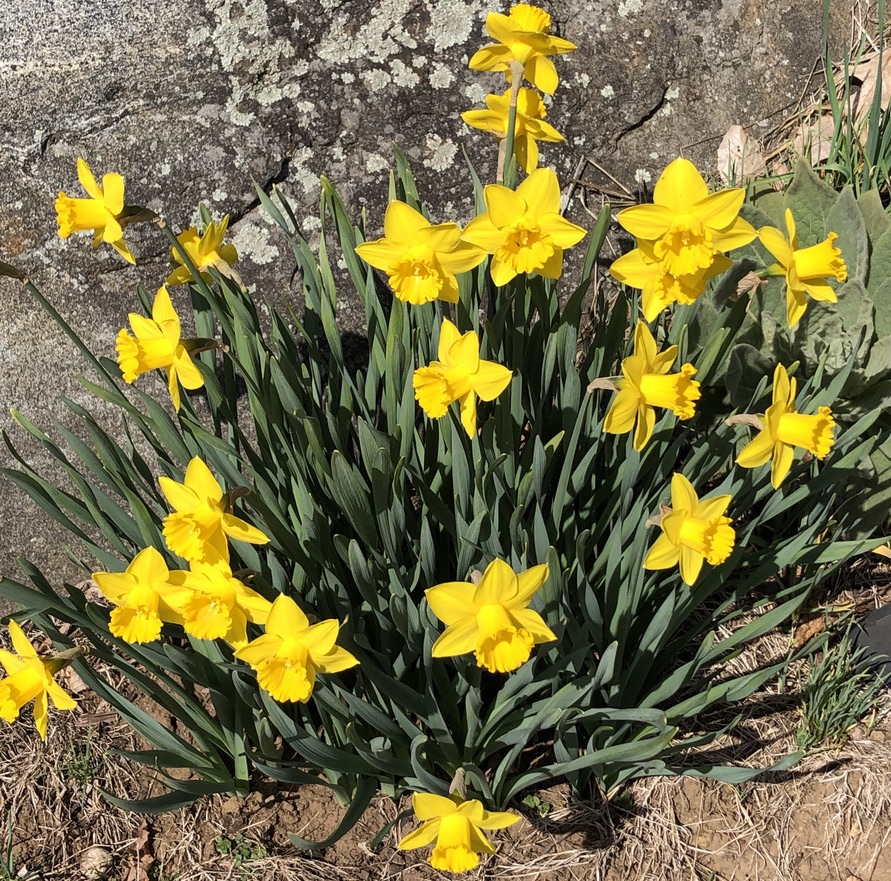It‘s Spring (and Wordsworth‘s Birthday)

Seems like a good time to share what I wrote about the poet in 1,000 Books to Read Before You Die:
In the first stanza of his lovely lyric “I Wandered Lonely as a Cloud,” William Wordsworth recounts his vision of
. . . a crowd,
A host, of golden daffodils;
Beside the lake, beneath the trees,
Fluttering and dancing in the breeze.
It’s a clear vision, clearly expressed, available not only to other poets but to any walker lucky enough to stumble upon a flourishing field of flowers. Only in the fourth and final stanza of the poem does Wordsworth’s true genius raise its head, immortalizing the poem and its daffodils by the poet’s remembering their glory:
For oft, when on my couch I lie
In vacant or in pensive mood,
They flash upon that inward eye
Which is the bliss of solitude . . .
In poem after poem—from his lyrical ballads and eloquent sonnets to his magnificent longer poems, such as “Tintern Abbey” and “Ode: Intimations of Immortality”— Wordsworth enriches his experience by reflecting upon it in solitude. Retrospect is Wordsworth’s medium, and he may well be said to have invented it, and perhaps solitude itself, as a dimension of the literary imagination. His achievement is so large, so pervasive in its influence, that we are in danger of barely noticing it today. But much of the most inventive literature created in the nineteenth and twentieth centuries, aptly enough, looks back to him.
Although “Ode: Intimations of Immortality” may be the most beautiful expression of the poet’s ethos (and no reading life is complete without a dive into its deep, bracing, and soothing waters), Wordsworth paints his most complete picture in The Prelude, a book-length autobiographical poem on the “growth of a poet’s mind.” It follows him from early childhood and school through studies at Cambridge and residence in London to France during the Revolution. Whether describing the looming, numinous presence of nature he feels while skating as a boy on a lake, or the pageant of passing faces on a London street, or the passions with which he and other enthusiasts greeted the early days of France’s rebellion (“Bliss was it in that dawn to be alive, / But to be young was very heaven!”), Wordsworth writes with an eager, earnest energy that integrates experience into the stream of consciousness that is the true, emergent medium of all our lives. In The Prelude’s thousands of pentameters, Wordsworth charts the fears and fabrications, the habits and the intuitions, the shaping processes and private emanations of the self, in a way that no seer had previously envisioned; in his pages the human imagination comes to life as a natural resource worth the work and wonder of cultivation. The vast poem is dense and lyrical and at times slow-going, but it need not be read all at once; it remains a rich reading landscape to wander in, and wandering is the best way to navigate its riches, for serendipity will bring you face to face, again and again, with qualities of your own solitude that you have forgotten or never paused before to recognize.
More thoughts on reading Wordsworth, and “Intimations of Immortality” in particular, here: Telling Time: A Family Album.
